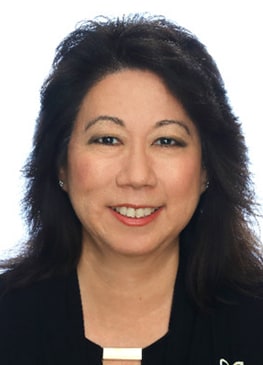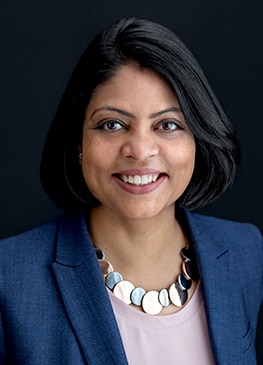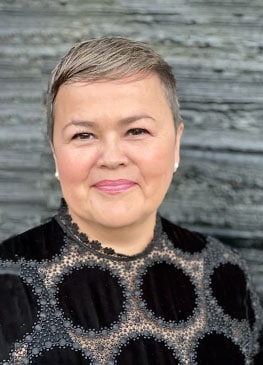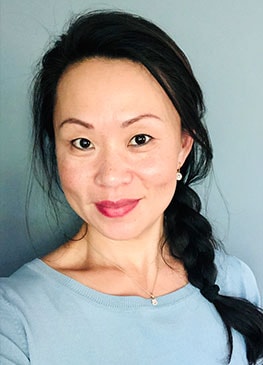Read the full interview here
-

Q. Where did you grow up, and what were some important early influences for you that really shaped who you are as a leader today?
A. I came to America from India when I was three years old, and I grew up in Pennsylvania and Connecticut. My dad came first to the United States on a student visa to get his Master’s in Mechanical Engineering, and then my mom and I came over to join him.
My parents both worked. My dad and my mother ran a small business, and so I grew up seeing my dad leaving the house every morning at 6 a.m. to go to his engineering job. And then in the evenings and on weekends, he would work at our store. So I was very accustomed to working hard, and seeing a very strong work ethic. Because my dad was an engineer, he taught me the importance of science and math. That’s how I got into computer science.
-

Q. What is your playbook for building high performing teams?
A. Team collaboration is the most important thing you need in order to get things done. One thing I learned early on in my career was the importance of spending time with the team, individually and collectively, so that everybody is able to contribute. It’s about always trying to improve the overall team dynamic.
One of my favorite managers taught me that you have to make sure your team and your colleagues know that the work they are doing is important. But more than that, it’s also my role as a leader to make sure that I’m helping each person be viewed as important by their teammates and customers. I know how good that made me feel when my boss did that for me. And it’s something that I want everyone I work with to feel as often as possible.
-

Q. Do you feel like you’ve encountered any headwinds in your career because you’re a woman?
A. I definitely have. As I’ve progressed in my career, I’ve had fewer and fewer women peers in my more senior roles. We’re so much more focused on diversity and inclusion in the world now, but it’s much more apparent to me that things aren’t as equal as they could be.
I’ve had experiences early in my career when I was always the person who organized things. I took the meeting minutes. I organized the team outings. I created the agendas. And that work fell to me, no matter what my role was. If something administrative had to be done, it was assigned to me.
I don’t think it was done on purpose, or just because I was the only woman on the team. But I mentor women to not become the person who’s always carrying the administrative burden if it’s not your full-time job. And if it’s something that you do in addition to supporting your team, make sure that you’re sharing those responsibilities, to avoid the dynamic where the only person doing that work on the team is the woman.
I also feel that it may have taken me longer to get to my more senior roles than maybe some of my male counterparts. And I think there are a couple of reasons. Sometimes women, myself included, have a little bit of self-doubt. Am I confident I can handle the next role? That’s a tendency that women have more than men. And some of the feedback I’ve heard is that I’m “too” something, whether it’s too assertive or too quiet or too something else. I think that kind of feedback is shared more often with women than with men.
-

Q. Were there any moments where somebody said something to you or did something to you in a meeting that required you to have a tough conversation with them?
A. I feel sometimes that I’m cut off by certain individuals, especially when I’m the only woman in the room. And now I just keep talking. Even a few years ago, I would just stop if somebody started talking over me. Now, I’ll make it more of a challenge by making it clear that I’m also talking.
And I have, in a couple of instances, had an offline discussion with someone to say, “Do you recognize that this is happening?” I make the assumption that they don’t recognize it, and in every situation, they’ve apologized and said they didn’t realize it and they would be more cognizant of it.
The second scenario, in two of the roles I’ve had, is that I’ve heard indirectly that people asked colleagues of mine whether the reason I got the role was because I’m a woman. I find that quite troubling, because I’ve worked quite hard to get these roles. But that’s still something that people think. It’s really one of the biases that I hope, over time, we can all break.







